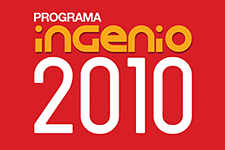| Research groups offering visits 2012 |
 |
 |
|
Combination of experimental data on Dark Matter and Higgs Searches We are investigating Dark Matter (DM) from the theoretical side.In particular, we work in the framework of the Minimal Supersymmetric Standard Model (MSSM) that redicts a natural DM candidate, the lightest neutralino. Several computer codes for the prediction of DM properties in the MSSM exist. Complementary, other codes are available that connect the scale of Grand Unification with our world, the electroweak scale, or codes that predict the properties of other sectors of the model, in particular the sector of the Higgs particles. An important question is a combination of all predictions to confront the model with all experimental restrictions (from direct and indirect DM searches, Higgs searches at the Large Hadron Collider (LHC) at CERN, searches for Supersymmetric particles at the LHC etc.) The project consists in combining two or three of the relevant computer codes and to test this combination with existing experimental data. During this work an overview about various aspect of elementary particle physics and DM (within the framework of Supersymmetry) is given. The project is suitable for one or two students.
USAL 1) Resonant effects in detection of DM in crust of neutron stars The stay will be devoted to the theoretical study of accreted dark matter in the crust of neutron stars. Assuming a nuclear composition the energy deposit in the medium will be analyzed. 2) DM annihilation into light quark channels in the medium. The stay will be devoted to the theoretical study of deposited energy in the nuclear medium in dense neutron stars due to annihilation into standard model channels of hadronic and leptonic type. The IFIC-AHEP group at Valencia accepts summer students for training in the group's research activities. Such activities are focused on phenomenology of beyond the Standard Model, Dark Matter and Neutrino physics. The selected students would get experience on direct and indirect dark matter searches, characterization of well--motivated dark matter candidates and their connection with neutrino physics. UCM-Th group offers to incorporate two students. Research topics proposed: 1. - Alternative cosmological models The project focuses in the so called modified gravity theories and their possible connection to the dark matter and dark energy problems. In particular, we consider the possibility of studying dark energy models responsible for the present phase of accelerated expansion of the universe based on vector-tensor theories and other modifications of gravity such as f(R) gravity. Dark energy models which differ from the standard cosmological constant could have important implications in the determination of the cosmological parameters, and in particular in the present value of the dark matter abundance. 2. - Dark Matter Phenomenology The identity of the nature of dark matter is a major question in both particle physics and astrophysics. The traditional particle candidates are cold and collisionless, and they predict missing energy and momentum signals at particle colliders. However, recent progress has expanded the list of well-motivated candidates and their possible signatures. In this project, we will study the basic properties of non-standard candidates, their motivation, their expected production mechanisms, and their implications for particle colliders, direct detection, indirect searches, and other astrophysical observations as possible modifications of the cosmic microwave background or primordial abundances.
In the frame of the Summer Students Program of the MULTIDARK project, the Zaragoza University group offer the incorporation of one student to the activities carried out at the LSC in the direct search of the galactic dark matter using different detection techniques. ANAIS uses NaI(Tl) scintillators and searches for the annual modulation expected in the dark matter signal. ROSEBUD works in R+D about a novel technique: scintillating bolometers, able to discriminate the dark matter signals from the dominant backgrounds (beta and gamma particles). The selected student will collaborate in the operation and maintenance of the detectors at the Canfranc Underground Laboratory. However, most of his work will be carried out at the Zaragoza University facilities.
IFIC’s group offers the summer students to get acquainted with the ANTARES and KM3NeT neutrino telescopes. There will be a variety of activities. They will learn to use at a basic level the data analysis tools with simple, but pedagogical problems using the ROOT package. They will make small simulations on concrete aspects of some problems related to ANTARES. They will prepare, guided by the group members, presentations on topics linked to dark matter and they will be encouraged to understand the essentials of the analyses being performed by some of the members of the research group. Finally, they will attend to the remote control of the ANTARES detector from the dedicated room installed at IFIC. |




